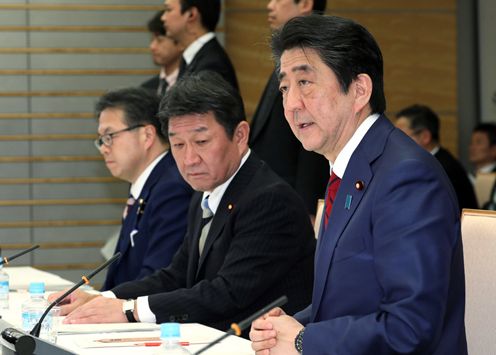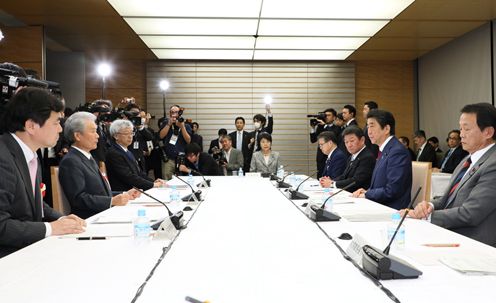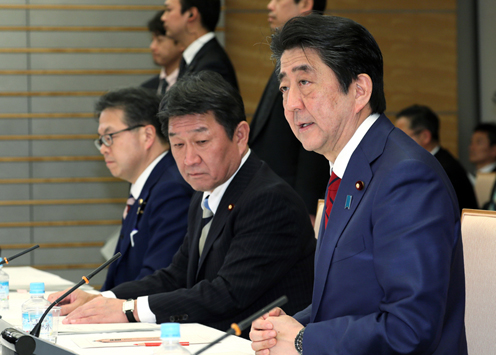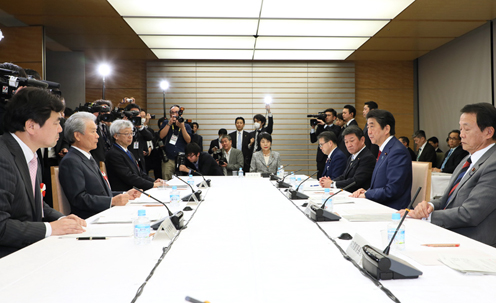Home > News > The Prime Minister in Action > February 2018 > Meeting of the Council on Economic and Fiscal Policy
The Prime Minister in Action
Meeting of the Council on Economic and Fiscal Policy
February 20, 2018

Photograph of the Prime Minister making a statement (1)

Photograph of the Prime Minister making a statement (2)
[Provisional Translation]
On February 20, 2018, Prime Minister Shinzo Abe held the 2nd meeting in 2018 of the Council on Economic and Fiscal Policy at the Prime Minister’s Office.
At the meeting, there were intensive deliberations over monetary policy, commodity prices, and other issues, followed by discussions on the management of the economy before and after the 2020 Tokyo Olympic and Paralympic Games, and the foreign labor force.
Based on the discussions, the Prime Minister said,
“Firstly, we held intensive deliberations over monetary policy, commodity prices, and other issues.
This was followed by discussions on the management of the Japanese economy before and after the 2020 Tokyo Olympic and Paralympic Games.
We heard the views of the private-sector members, including the importance of overcoming fluctuations in demand caused by the consumption tax increase and the hosting of the Olympic and Paralympic Games, and placing the Japanese economy on a stable growth trajectory.
In light of the experience of the consumption tax increase in 2014, and drawing lessons from cases in Europe, we need to control economic swings such as last-minute surge in demand and reactionary decline brought about by the consumption tax increase, and the Government must work together to consider concrete policies for leveling the fluctuations in demand. I ask for the cooperation of the relevant ministers in these efforts.
Secondly, we held discussions on the foreign labor force.
The Abe Cabinet has no intention of implementing so-called ‘immigration policies.’ We stand firm on this point. Meanwhile, while the ratio of active job openings to applicants has reached its highest level in 43 years as a result of five years of Abenomics, companies including small- and medium sized enterprises (SMEs) and small business are faced with serious personnel shortages.
To improve productivity and the working environment for women and the elderly, we need to promote revolutions in productivity and human resources development, along with work style reform, and swiftly examine our systems for accepting foreign personnel with specialized and technical skills.
By establishing a maximum residency period and a precondition not to permit family members to accompany the foreign personnel in principle, we will conduct a detailed study of system reform while focusing on sectors with a genuine need of labor, with the aim of presenting a direction by this summer. I would like to ask Chief Cabinet Secretary Suga and Minister of Justice Kamikawa to commence the study urgently with the cooperation of the relevant ministries overseeing the respective sectors.”


